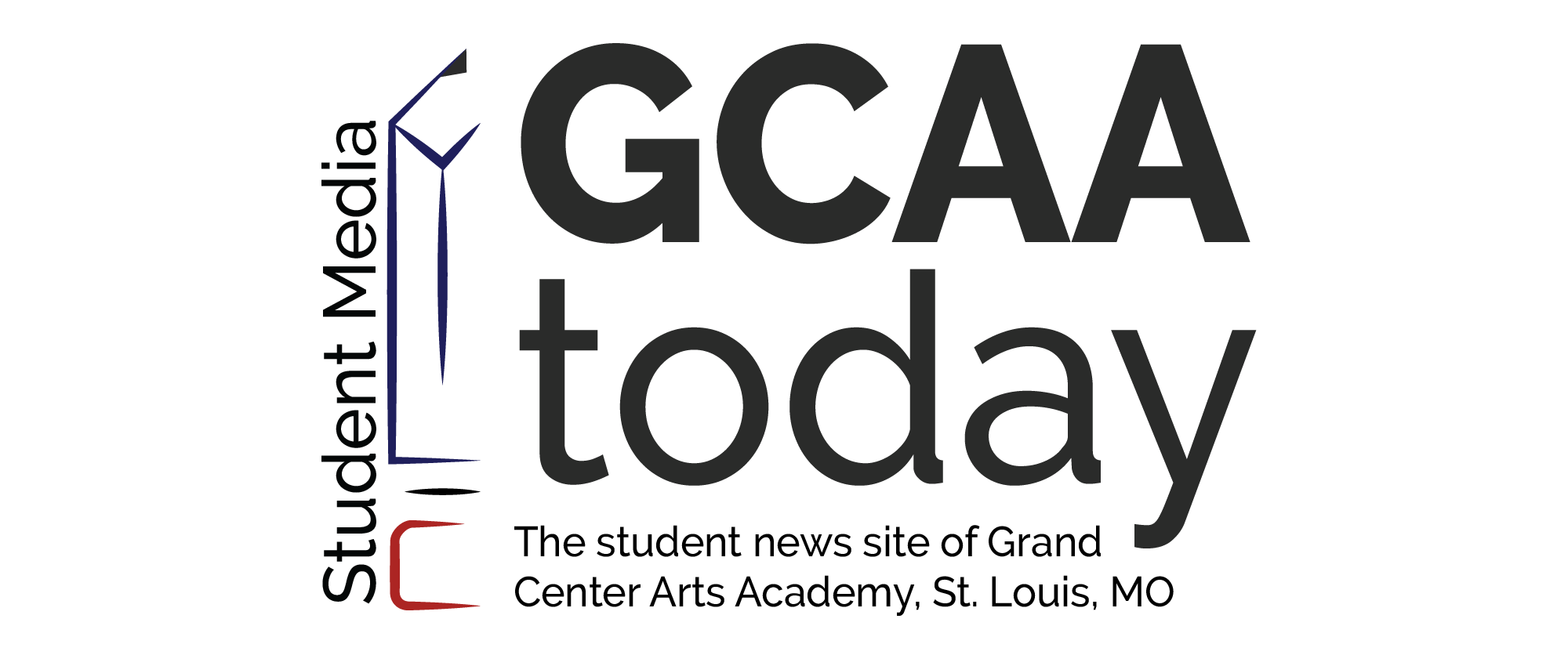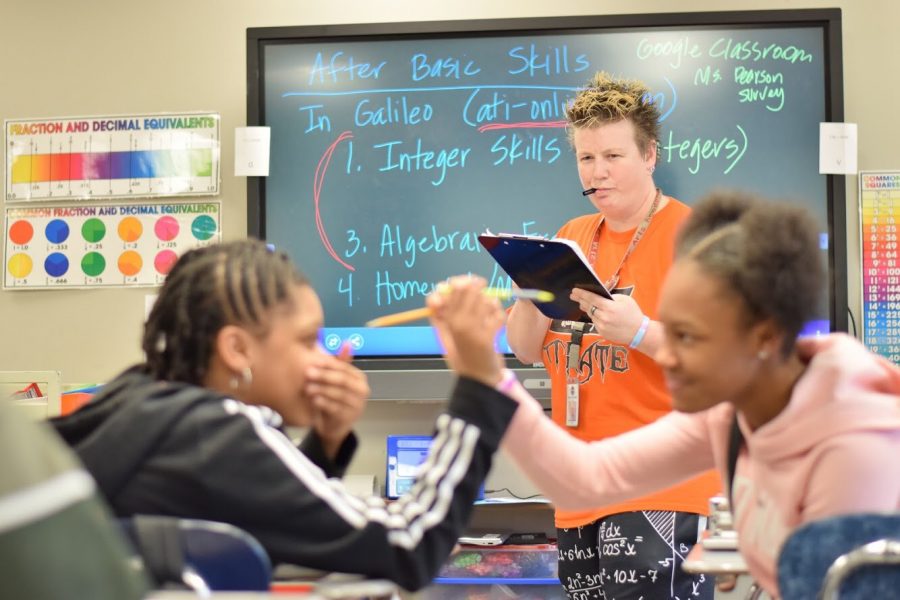Major minor system uses incentives to improve middle school behavior
Photo illustration. 7th grader India Mitchell and 7th grader Janelle Briggs horseplay in math class as 7th Grade Math teacher writes them up for minors on her clipboard.
January 7, 2019
Inspired by South City Academy’s policy, the major-minor system uses punishments and rewards to enforce school rules among middle school students.
“I like it because it gives students the opportunity to correct their behavior before something major happens…and they won’t have to have major consequences for minor actions, but then also, it is tied to an awards system, so it’s not like we’re only giving majors and minors and nothing else…Every month, each grade level, we have an incentive, so depending on the number of minors you have or don’t have, you could participate,” lower academy principal Tennille Peeler said.
Seventh grade geography teacher Emily Hill briefly introduced the policy, having heard about its success at South City, during a meeting over the summer before the school year of 2018-2019.
“Ms. Peeler used to be the principal there, so knowing that she was going to be our new principal and that she had experience with it, and that they had a lot of success with it,” Hill said.
After the meeting, seventh grade math teacher Elizabeth Reeder approached Hill for details. The two agreed to work together on the policy, editing South City’s documents to fit GCAA’s schedule, and introducing the policy to the student body at the start of the year.
The policy is based around the idea of minor actions; like horseplay, tardies, and talking back to the teacher; eventually amounting into larger punishment. At each multiple of three, increasingly harsh punishments are implemented.
“At three you get a phone call, at six it’s a lunch detention, at nine you get an after school detention, and then at twelve you get a referral from Ms. Peeler, and it becomes an in-school detention, and at fifteen, it becomes out of school,” Reeder said.
The system also assigns certain students to certain teachers, who are responsible for carrying out their punishments.
“You take the entire grade level and divide it by the number of advisory teachers…the ones you have in advisory are your assigned kids,” said Hill.
Students who receive minimal amounts of minors are given rewards at the end of each month, quarter and semester. At the beginning, the awards seemed ineffective, with only about 25-30 students eligible to participate. However, that number skyrocketed to 58 by the end of the quarter.
“The increase came because they saw the incentive and activity that happened the first quarter, and it sparked their interest to want to participate. I heard some things that last year there weren’t a lot of fun things going on, so we really focused…to try to incorporate more fun and rewarding events, and I think that is what is attracting the students,” Peeler said.
The database helps staff identify the students with behavior issues so that they can support them.
“In all grade levels, the students who are getting a large number of minors repeatedly…are having parent meetings,…they’re getting behavior plans put in place to try to deal with the behaviors that they’re having, some of them have been put on the care team so that they’re getting social services and other things to help intervene, to help change things for them,” Peeler said.
“I see a whole change. No disrespect,” seventh grader Morgan Elsaw said.
“I think it sets really specific guidelines, and also I think, in the two years that I’ve been here prior, we hadn’t been doing a good enough job of rewarding the students who were doing the right thing, we had really been focused on the students doing the wrong thing,” Reeder said.











